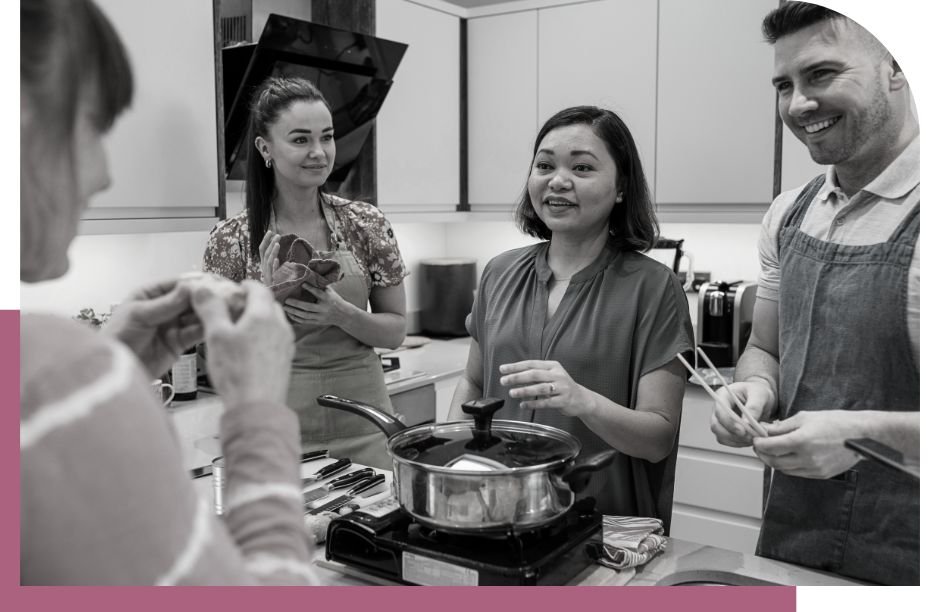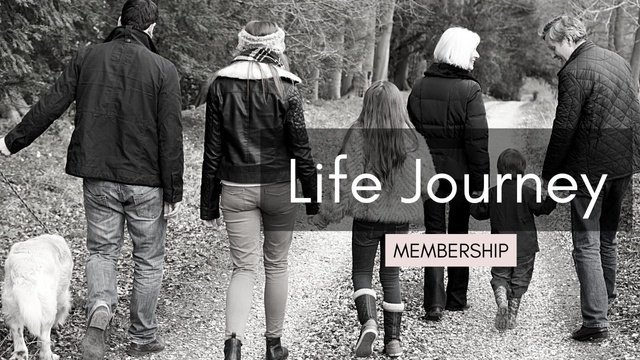Boost Your Social Life with Powerful Conversation Techniques
Are you tired of feeling like the outsider at social events, struggling to engage in conversations because of shyness or awkwardness? It's frustrating, isn't it? These limitations not only impact your social life but can also hinder your career growth.
But here's the good news: You have the power to transform your social skills and confidently enter into conversations. By following the strategies outlined in this article, you can break free from the chains of social anxiety and unlock a world of meaningful connections and engaging interactions.
Embrace the opportunity to enhance your conversation skills and watch as doors open, relationships flourish, and your social life thrives. Don't let your shyness or hesitation hold you back any longer. It's time to take charge and step into a more confident, socially empowered version of yourself.
Key Takeaways:
Improving your conversation skills can have a profound impact on your social life.
Don't let shyness or anxiety stop you from engaging with others.
Start small and gradually build up your social interactions.
Ask open-ended questions to keep conversations flowing.
Show genuine interest in others and encourage them to share about themselves.
Behave Like a Social Person
Feeling like a social butterfly doesn't come naturally to everyone, but that doesn't mean you can't fake it till you make it. Even if you don't feel particularly social, you can still behave like a social person and improve your conversation skills. Don't let anxiety hold you back from engaging with others. Take the decision to step out of your comfort zone and approach new people, initiate conversations, even when you feel nervous about it. Remember, practice makes perfect, and with time, you'll find it easier to socialize and quickly enhance your social skills.
"Life is really simple, but we insist on making it complicated." - Confucius
Confucius once said, "Life is really simple, but we insist on making it complicated." The same goes for socializing. It's all about removing the barriers you've created in your mind and taking the first step. You might be surprised to discover that people are generally receptive and welcoming. So, dive in and engage in conversations, even if it feels uncomfortable at first. It's a journey of personal growth that will lead to a more fulfilling social life.
Start Small if Necessary
If attending a crowded party or spending time in a large crowd feels overwhelming to you, don't worry. You can start small and gradually build your social skills. Begin by challenging yourself with simple interactions, such as going to the grocery store and saying a polite "Thank you" to the clerk or visiting a restaurant and confidently placing your order.
By practicing these small interactions, you can gradually gain confidence and improve your social skills. Starting with small talk in low-pressure situations will help you ease into more complex conversations in the future.
Engaging in small interactions can greatly contribute to your overall goal of improving social skills. Take the opportunity to practice and build your confidence step by step.
Ask Open-Ended Questions
If you want to steer the attention away from yourself in a conversation and foster deeper engagement, open-ended questions are the way to go. By encouraging others to share their thoughts and experiences, you can avoid engaging in idle chit-chat and create a more meaningful conversation. Open-ended questions require more than a simple yes or no answer, allowing the other person to express themselves fully and keeping the discussion flowing.
Instead of asking closed-ended questions like "Did you have a good day?" try asking open-ended questions like:
"What was the most interesting thing that happened to you today?"
"How do you feel about the latest industry trends?"
"Can you share your perspective on the current political climate?"
Asking open-ended questions not only shows your genuine interest in the other person's thoughts and opinions but also invites them to contribute more to the conversation. It allows for a deeper level of discussion and creates opportunities for meaningful connections.
Remember, improving conversation skills is an ongoing process, and practicing open-ended questions can greatly enhance your ability to connect with others. So, next time you find yourself in a conversation, try engaging the other person by asking thought-provoking questions that encourage them to share their insights and experiences.
Encourage Others to Talk About Themselves
Most people really enjoy talking about themselves. It's a natural human inclination to share our experiences, thoughts, and feelings. So, if you want to improve your conversations and make a genuine connection with someone, try encouraging them to talk about themselves. By showing genuine interest and asking open-ended questions, you can create a space where they feel comfortable sharing.
Start by asking questions about a person's career, hobbies, or family. People love talking about their passions and achievements, so give them the opportunity to do so. For example, you could ask:
"Tell me about your career journey. What led you to where you are today?"
"What are some of your favorite hobbies or activities? How did you get into them?"
"Do you have any interesting stories about your family? I'd love to hear them!"
Remember, it's important to actively listen and show genuine interest in their responses. Maintain eye contact, nod, and use verbal cues to let them know you're engaged in the conversation. This will not only make the other person feel valued and heard, but it will also create a positive and enjoyable interaction for both of you.
Keep the Conversation Going Like a Game of Ping Pong
If you want to keep the conversation flowing, think of it as a game of ping pong. When the other person offers their response, use it as an opportunity to bounce back and share your own related experiences or thoughts. This back-and-forth exchange creates a dynamic and engaging conversation that allows both parties to contribute and connect.
For example, if the person shares a story about their recent vacation, you can respond with:
"That sounds amazing! I've always wanted to visit [destination]. Have you ever been there before?"
"I love traveling too! What was the most memorable part of your trip?"
"Wow, it must have been an incredible experience. Did you try any local cuisine while you were there?"
By taking an active role in the conversation and building upon what the other person shares, you can create a positive and enjoyable dialogue that fosters deeper connections and improved communication skills.
Create Goals For Yourself
Improving your social life starts with setting goals for yourself. By establishing small, achievable goals, you can gradually build your confidence and improve your social skills. Consider the following goals:
Practice a specific skill: Identify an area in which you feel less confident, such as starting conversations or maintaining eye contact. Set a goal to practice this skill regularly to improve over time.
Attend social activities: Get involved in social activities in your community that align with your interests. Whether it's joining a sports team, attending a book club, or participating in volunteering events, engaging in activities will provide opportunities to meet new people and expand your social circle.
Strategies to achieve your goals
Create an action plan: Break down your goals into smaller, manageable steps. Write down specific actions you can take to work towards each goal. For example, if you want to practice starting conversations, your action plan could include initiating small talk with a stranger once a day.
Track your progress: Keep a journal or use a goal-tracking app to monitor your progress. Celebrate small milestones along the way, which will encourage you to keep going.
Seek support: Share your goals with a trusted friend or family member who can provide encouragement and accountability. Consider joining a social skills support group, where you can connect with others who are also working towards improving their social lives.
Remember, improving your social life is a journey, and progress takes time. Be patient with yourself and stay committed to your goals. With consistent effort and a positive mindset, you'll gradually enhance your social skills and enjoy a more fulfilling social life.
Offer Compliments Generously
Compliments can be a great way to open the door to a conversation. When you offer a sincere compliment, it not only brightens someone's day, but it also shows that you are friendly and approachable. Whether you're at work, attending a social event, or simply interacting with your neighbors, offering compliments can improve the quality of your conversations.
Consider complimenting a co-worker on a presentation they gave at a recent meeting. Acknowledge their hard work and specific strengths you noticed during their presentation. This will not only boost their confidence but also create a positive impression of you as a supportive colleague.
Similarly, if you notice your neighbor has purchased a new car, take a moment to compliment them on their choice. Ask them about the features they like or what attracted them to that particular model. This simple act of kindness can lead to a friendly conversation and potentially foster a stronger bond with your neighbor.
Remember, offering compliments should come from a genuine place. Be specific and sincere in your praise, focusing on something you truly appreciate or admire. Your kind words can make a significant impact on others and improve the overall quality of your conversations.
Benefits of Offering Compliments in Conversations Examples 1. Creates a positive atmosphere Complimenting a co-worker's presentation at a meeting 2. Helps build rapport Complimenting your neighbor on their new car 3. Encourages open and friendly communication Complimenting a friend on their fashion sense 4. Boosts confidence Complimenting someone's public speaking skills 5. Enhances personal connections Complimenting a family member's culinary skills
Offering compliments generously not only improves conversation skills but also fosters positive relationships and connections. Remember to be sincere, specific, and thoughtful in your compliments, and watch as conversations blossom and your social life flourishes.
Read Books About Social Skills
When it comes to improving your social skills, reading books can be a valuable resource. There are numerous books available that offer insights, strategies, and practical tips on how to enhance your social interactions and initiate meaningful conversations.
However, it's important to remember that simply reading about social skills won't make you an expert overnight. Just like any other skill, you need to put what you learn into practice to see real improvement.
Books on social skills can provide you with a wealth of knowledge about various aspects of socializing, such as body language, active listening, and effective communication. They can help you develop a better understanding of human behavior, improve your conversational abilities, and boost your confidence in social settings.
Here are a few highly recommended books that can help you improve your social skills:
The Charisma Myth by Olivia Fox Cabane
How to Win Friends and Influence People by Dale Carnegie
The Fine Art of Small Talk by Debra Fine
Crucial Conversations by Kerry Patterson, Joseph Grenny, Ron McMillan, Al Switzler
By investing time in reading books about social skills, you can gain valuable insights and practical advice that will help you navigate social situations with confidence and ease.
Practice Good Manners
Good manners play a significant role in enhancing your social skills. By practicing politeness, gratitude, and good table manners, you can create a positive impression and foster meaningful connections with others.
When engaging in conversations, it's essential to be respectful and considerate towards others. Listen actively, maintain eye contact, and avoid interrupting or talking over people. Remember to use appropriate language and tone, and be mindful of your body language to convey interest and openness.
Expressing gratitude is another important aspect of good manners. Show appreciation for others' efforts, compliments, and gestures of kindness. A simple "thank you" can go a long way in making people feel valued and building stronger relationships.
Using good table manners is crucial, especially when dining with others. Chew with your mouth closed, use utensils properly, and avoid making loud noises. Being mindful of your dining behavior shows respect for the host and creates a pleasant and comfortable atmosphere for everyone.
Remember, good manners aren't just about following societal norms—they reflect your respect for and consideration of others. By practicing good manners consistently, you'll improve your social skills and create a positive and welcoming environment in all your interactions.
Pay Attention to Your Body Language
When it comes to effective communication, non-verbal cues can often speak louder than words. Your body language plays a crucial role in how others perceive you and can greatly impact your social skills. By paying attention to your body language, you can improve your social interactions and make a positive impression on others.
One key aspect of body language is appearing relaxed. Avoid crossing your arms or fidgeting, as it can make you seem closed off or anxious. Instead, stand or sit up straight, keep your shoulders relaxed, and let your body convey a sense of ease and confidence.
Another important element of body language is maintaining appropriate eye contact. When engaging in conversation, make sure to establish and maintain eye contact with the person you are speaking to. This shows interest and attentiveness, and fosters a deeper connection.
Additionally, appearing open to conversation can significantly enhance your social skills. This can be achieved by having an open posture, facing the person you are speaking to directly, and using welcoming gestures.
By being mindful of your body language, you not only improve your social skills but also convey confidence and approachability. Remember, actions speak louder than words, and your body language can communicate volumes.
Join a Social Skills Support Group
Are you struggling with social situations and finding it hard to connect with others? Don't worry, you're not alone. Many communities offer social skills support groups that can provide the guidance and practice you need to improve your social skills and build meaningful connections.
Social skills support groups are specifically designed for individuals who feel shy, awkward, or excessively anxious in social settings. These groups create a safe and supportive environment where you can learn and practice new communication techniques, develop confidence, and overcome social challenges.
By joining a social skills support group, you'll have the opportunity to meet others who share similar difficulties, providing a sense of camaraderie and understanding. Together, you can learn from each other's experiences, offer support, and celebrate progress as you navigate the path towards improved social skills.
Participating in a social skills support group not only provides valuable learning opportunities but also allows you to expand your social network. As you meet new people and develop friendships within the group, you'll have a supportive community to lean on during your journey of personal growth.
Benefits of Joining a Social Skills Support Group:
Opportunity to learn and practice new social skills
Safe and supportive environment
Understanding and empathy from others who share similar challenges
Expansion of your social network
Accountability and motivation to improve
If you're ready to take the next step in enhancing your social skills and boosting your confidence, consider joining a social skills support group. With the guidance of experienced facilitators and the shared experiences of group members, you'll be on your way to developing the skills needed to thrive in social situations. Remember, improvement takes time and practice, but with the support of a social skills group, you'll be equipped with the tools to navigate social interactions successfully.
Conclusion
Good social skills are essential for improving your social life and enhancing your conversation skills. If you find socializing challenging, don't worry, there are strategies you can implement to become more confident in social situations. By consistently practicing these tips and engaging in conversations with others, you can develop great social skills that will benefit various aspects of your life.
Remember, improving your social skills takes time and effort. Start by behaving like a social person, even if you don't feel like it, and gradually challenge yourself to engage in conversations with new people. Asking open-ended questions can help shift the attention off you and encourage others to talk, while showing genuine interest in others will keep the conversation flowing.
Setting goals for yourself, offering compliments generously, and reading books about social skills can contribute to your growth in this area. Additionally, practicing good manners, paying attention to your body language, and joining a social skills support group can further enhance your social skills. Remember, consistency is key.
FAQ
-
Improving your social skills can help you feel more confident and comfortable in social situations, leading to better relationships and networking opportunities that can positively impact both your personal and professional life.
-
It's important not to let anxiety hold you back. Make the decision to talk to new people and enter into conversations, even when you're feeling nervous. Over time, it will become easier and you'll quickly start improving your social skills.
-
Start small. Practice making small talk by going into a grocery store and saying "Thank you" to the clerk or going to a restaurant and ordering your food. Gradually increasing your social interactions can help you build confidence.
-
Open-ended questions encourage others to talk, taking the attention off you if you're feeling uncomfortable. By asking questions that require more than a yes or no answer, you invite the other person to keep the conversation going.
-
Item description
-
By establishing goals, such as practicing a particular social skill or attending a social activity in your community, you can focus on strategies that will enhance your social interactions and overall social life.
-
Absolutely! Compliments can be a great icebreaker. Offering a compliment on a presentation a co-worker gave at a meeting or complimenting a neighbor on their new car can show that you are friendly and open to conversation.
-
Yes, there are many books available that can provide guidance on specific social skills and ways to start conversations. However, keep in mind that reading about these skills alone won't make you an expert - you'll need to practice them in real-life situations.
-
Good manners go a long way in making a positive impression. Practicing politeness, showing gratitude, and using good table manners can help create a favorable environment for social interactions.
-
Non-verbal communication plays a significant role in social interactions. By appearing relaxed, making appropriate eye contact, and displaying open body language, you can create a welcoming and approachable presence that encourages conversation.
-
Social skills support groups provide a safe and supportive environment for individuals who struggle with shyness and social anxiety. By learning and practicing new skills in a group setting, you can gain confidence and potentially make new friends who understand your difficulties.
-
By consistently implementing the strategies outlined and practicing them in your interactions with others, you can significantly improve your social life and conversation skills. It may take time and effort, but with determination, you can become more adept at engaging in meaningful conversations.
Have you started envisioning your best life but need support to make it happen? The Life Journey Membership is your key to ongoing growth and fulfillment. Gain exclusive access to a growing library of resources tailored to enhance every area of your life—or as we like to call them, journeys. From challenges that motivate you to mini-courses that enlighten, along with practical templates, workbooks, and eBooks, this membership is designed to support you as you craft your dream life.



























Discover the six common barriers that may be holding you back from achieving financial wellness and learn practical tips to overcome each challenge. Whether you're overwhelmed by the complexity of financial planning or procrastinating on money matters, this guide is your first step towards a more secure and prosperous financial future.